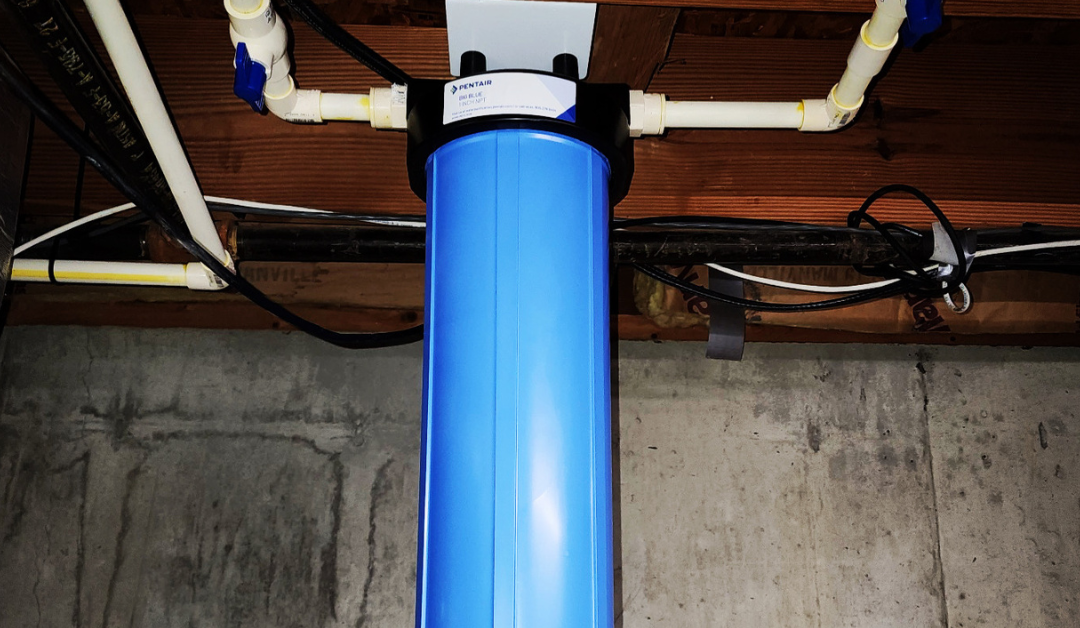For many, tap water serves as the lifeblood of our homes – a seemingly simple resource used for everything from drinking and cooking to cleaning and bathing. However, what flows from our faucets isn’t always as pure as it appears. Municipal water treatment systems typically utilize chlorine as a disinfectant, effectively eliminating harmful bacteria and protecting public health. While chlorine plays a vital role in safe drinking water, it can have a hidden downside – its potential to damage your home’s plumbing infrastructure. Here’s where carbon filters emerge as silent guardians, mitigating the negative effects of chlorine and safeguarding your pipes.
How Chlorine Affects Pipes
Chlorine is a powerful disinfectant, but it’s also a reactive chemical. When chlorine comes into contact with the metal pipes in your home’s plumbing system, particularly older copper pipes, a series of undesirable reactions can occur.
Corrosion
Chlorine can accelerate the corrosion of metal pipes, causing them to deteriorate and develop pinhole leaks. These leaks can be difficult to detect at first, leading to hidden water damage and wasted water.
Pitting
Over time, chlorine can cause tiny pits to form on the inner surface of pipes. These pits can become breeding grounds for bacteria and can also contribute to further pipe deterioration.
Staining
While not a direct threat to pipe integrity, chlorine can lead to brown or reddish stains on fixtures and laundry due to the release of metal from the pipes.
The Power of Carbon: How Filters Neutralize Chlorine
Carbon filters act as silent protectors against the harmful effects of chlorine. Activated carbon, a form of carbon with a highly porous structure, is the key component in these filters. Here’s how it works:
Absorption
As water flows through the carbon filter, chlorine molecules are attracted to the vast surface area within the activated carbon’s pores. This process, called adsorption, essentially traps the chlorine molecules within the carbon, effectively removing them from the water.
Improved Taste and Odor
Apart from removing chlorine, carbon filters also absorb other organic compounds that can contribute to unpleasant tastes and odors in tap water. This results in cleaner, more palatable drinking water.
Benefits Beyond Pipe Protection
While protecting your pipes from chlorine damage is a significant advantage, carbon filters offer additional benefits:
Enhanced Appliance Longevity
Chlorine can shorten the lifespan of appliances like dishwashers and washing machines. By removing chlorine, carbon filters can help extend the life of these valuable household items.
Reduced Skin Irritation
Chlorine can irritate sensitive skin. Using a carbon filter can help reduce skin irritation caused by showering or bathing with chlorinated water.
How to Choose the Right Carbon Filter
There are various types of carbon filters available, each with specific applications:
Pitcher Filters
Portable and convenient, these filters are ideal for small quantities of drinking water.
Faucet-Mounted Filters
These filters attach directly to your kitchen faucet, offering filtered water on demand.
Whole-House Filters
Installed at the main water supply line, these filters provide filtered water throughout your entire home, protecting both your pipes and appliances.
FAQs about Chlorine and Carbon Filters
Will a Carbon Filter Remove all the Chlorine from My Water?
Most household carbon filters significantly reduce chlorine levels, but they may not remove it entirely. The effectiveness of chlorine removal depends on the specific filter and the level of chlorine present in your tap water.
Are There any Downsides to Using a Carbon Filter?
Carbon filters can slightly reduce water flow, especially as the filter nears the end of its lifespan. Additionally, some types of carbon filters may remove beneficial minerals from your water. If you’re concerned about mineral content, you can choose a filter that doesn’t remove minerals or consider using a remineralization filter after the carbon filtration process.
How Often Do I Need to Replace My Carbon Filter?
The frequency of filter replacement depends on the type of filter, your water usage, and the level of chlorine in your water supply. Generally, carbon filters for drinking water need to be replaced every 2-3 months, while whole-house filters may last 6-12 months. It’s important to consult the manufacturer’s recommendations for your specific filter.
Can I Use a Carbon Filter to Remove Other Contaminants from My Water?
While carbon filters are effective at removing chlorine and some organic compounds, they may not remove all contaminants present in your water supply. If you’re concerned about specific contaminants, such as lead or heavy metals, you may need a different type of water filtration system, such as a reverse osmosis system.
Are There Any Other Ways to Reduce the Effects of Chlorine on My Pipes?
There are a few additional measures you can take to minimize chlorine’s impact on your pipes:
Flush Your Faucets Regularly
Running cold water for a few minutes can help flush out some of the chlorine from your pipes
Maintain a Slightly Acidic Water pH
Slightly acidic water can help reduce corrosion caused by chlorine. Consult a water treatment professional for guidance on adjusting your water’s pH level if necessary
Installing a carbon filter is a proactive investment in your home’s plumbing infrastructure. By removing chlorine, carbon filters can significantly reduce the risk of corrosion, pitting, and leaks, ultimately saving you money on repairs and replacements in the long run. Additionally, you’ll enjoy the benefits of cleaner, better-tasting water for all your household needs. So, consider adding a carbon filter to your water filtration system – a small step that can yield significant rewards for your pipes, your appliances, and your overall water experience. If you are interested in adding a carbon filter, call our team for more information!

